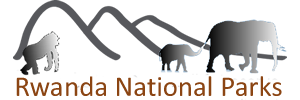PACKING LIST FOR A RWANDA SAFARI
When it comes to safaris to Rwanda or any other African country, packing right is a key element in determining your memorable experience in the destination. However, packing for Rwandan safari is slightly different from wildlife safaris in other African countries. This country’s tourism is centered on Mountain gorilla trekking, volcano climbing, golden monkey and chimpanzee tracking. This is definitely the reason why it is said that packing for a holiday or vacation to any country depends on activities you are intending to participate in. Nevertheless, the number one principle for any kind of safari is packing right and light which applies to every destination or activity.
Everyone who visits Rwanda will concur that this country offers the most unforgettable safari experience but if you pack wrong things, you will not enjoy what others describe as breathtaking or memorable. This article will focus on the packing list for the main tourist activities within the land of a thousand hills that include Gorilla trekking, golden monkey tracking, mountain hiking and Chimpanzee tracking. Therefore, the most important things not to miss in your packing list include;
Valid passports and Visas
Whichever activity or reason for travelling to Rwanda will require you to have a passport and Visa valid for at least 6 months.
Travel Insurance
Travel Insurance is very important for any safari or holiday to cover for any emergency medical expenses, injuries, personal liability, baggage and cancellation cover and even theft or loss of your luggage among others.
A waterproof backpack or daypack
This is important for carrying some of the things such as binoculars, camera, drinking water and packed lunch or snacks that are needed during gorilla trekking, Chimpanzee tracking and mountain climbing.
Strong waterproof hiking boots with enough ankle support to provide grip during hiking through the jungles. Avoid wearing sneakers and open shoes or flip flops because of the steep landscapes you have to climb during gorilla trekking, golden monkey tracking, mountain climbing and chimpanzee tracking.
At least two long sleeved shirts
Although some tourists don’t always heed to the advice of wearing long sleeved shirts, it is very important to protect your arms against stinging nettles, thorns, hairy leaves and even being scratched by tree branches. If you venture into the jungles wearing short sleeved or sleeveless tops, you are likely to return with scratched arms or even serious injuries. Neutral colors like black, blue, green and khaki are recommended but again avoid white because it easily catches dirt.
Long trousers (at least 2)
Just like long sleeved shirts are emphasized, long trousers are equally important to protect your legs from thorns, hairy and rough leaves and stinging nettles. These trousers have to be tucked into the socks to prevent insects from entering the trousers/pants.
A hat with a wide brim and sunglasses
Hats and sunglasses are handy for protecting your head and eyes respectively from the scotching tropical sunshine. The former can be purchased from the craft shops within the country.
Light rain jacket (Poncho)
Whether it is a rainy or dry season, it sometimes become difficult to predict whether it will rain or not mainly due to the location of Nyungwe and Volcanoes National Parks-forested areas on high altitude areas. Even when it is a dry season, you will be surprised when it starts raining in the middle of the day.
Long breathable socks
Cotton socks are important for gorilla trekking, nature walks, mountain climbing to protect your feet from friction blisters as a result of moving long distances during most of these activities. Trousers should also be tucked into the socks to prevent safari ants from entering your trousers.
Money belt
The money belt will not only be used for carrying money but also passports, Visas and your International Immunization cards. However for the sake of your security, avoid wearing the money belts over the clothing but should rather be worn under the clothing to avoid being robbed or stolen.
Gardening gloves
You will need to support yourself with tree branches or leaves while hiking which may have thorns hence garden gloves are handy for protecting your hands from injuries. Not only that, they are important for keeping your hands warm especially in the morning.
Make sure to carry toiletries such as sanitary pads (for ladies), wipes and hand sanitizers, soap, tooth paste and tooth brush, shampoo, washing soap, lip balm, lotion, antiseptic cream, shavers, detergents and deodorants among others.
Sweater
Nyungwe Forest and Volcanoes National parks are always cold in the mornings and evenings, which is why you need a sweater to provide warmth.
First Aid Kit
Since you will be conducting most of the activities within the jungles, you are likely to suffer from minor injuries and muscle strain hence you should have a first Aid Kit containing liniment, bandages, painkillers, anti-malarial drugs like Mefloquine and Malarone, and allergy remedies among others.
Insect Repellants against tsetse flies and mosquitoes are important and the recommended one is RID which should be applied on your clothes in the evening or before heading into the jungles.
Safari equipments and gadgets such as camera with enough batteries and a charger torch/flash light, memory cards and binoculars among others.
Others such as Pajamas, underwear, Swim suit, sandals for evenings, short sleeved shirts and shorts among others are important for relaxation or other activities such as community walks.
Therefore, packing light and right is one of the principles of achieving a memorable safari Experience in Rwanda. This involves carrying long sleeved shirts, strong waterproof hiking boots, long trousers, sweater, light rain jacket, insect repellants, a first Aid Kit, hat and sunglasses among others.
